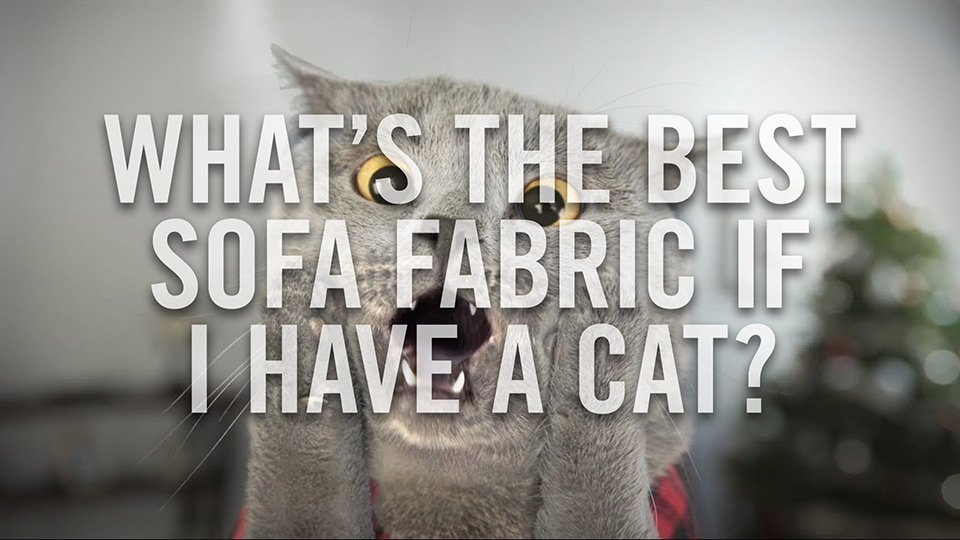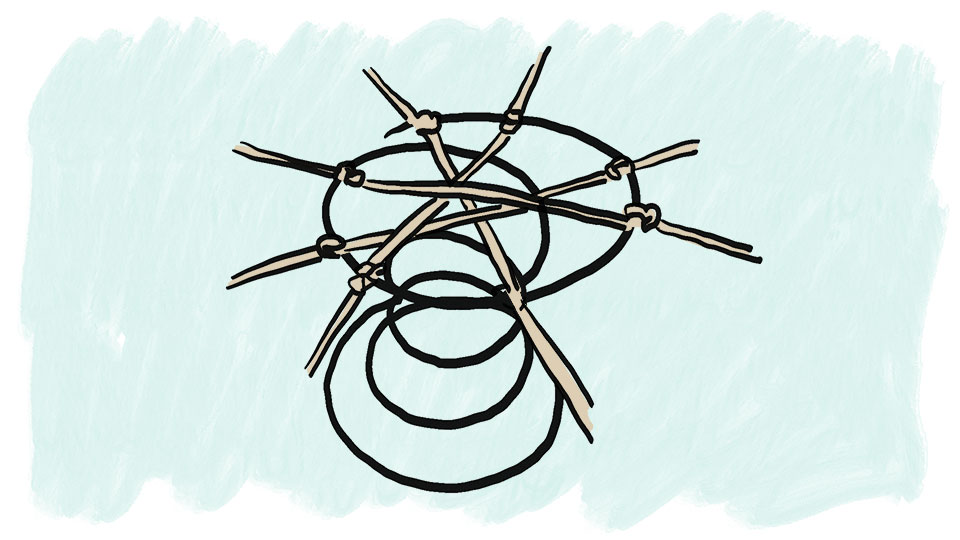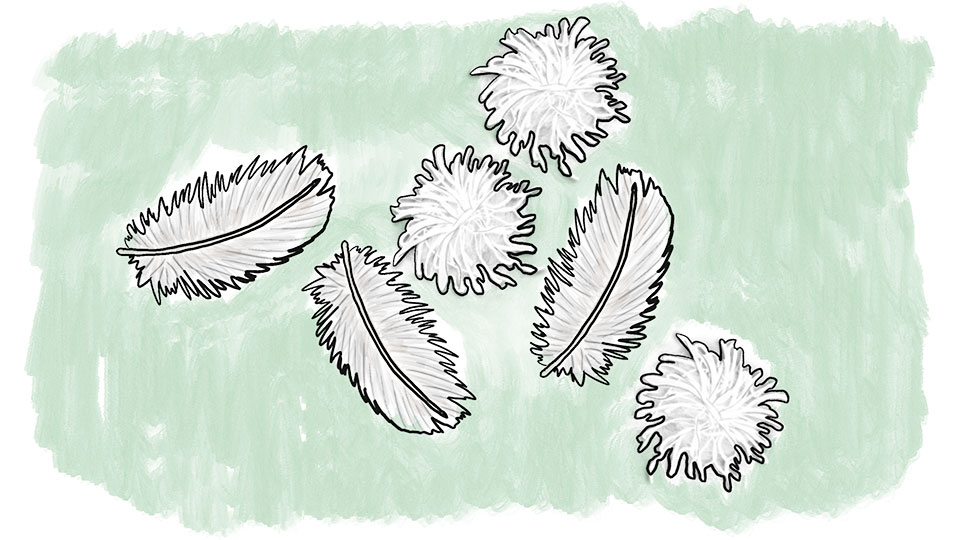Questions & Answers
Candid answers to your questions about furniture and design.
View All Questions
Cleaning and Freshening Your Sofa
Okay, it's time to be honest with ourselves: our sofas are filthy. We sit on them, lie on them, eat on them, get lint and dust and grim on them. So do our spouses, our kids, and our pets. While we regularly wash our clothes and bedding, sofas usually don't receive similar treatment. With so many of us spending even more of our time at home these days, our upholstery is probably more in need of a freshening than ever. Here are 6 tips on how to clean and rejuvenate your sofa.
1. Know what you're dealing with.
Remember when you bought your couch and it came with those helpful care instructions that you immediately forgot about? Time to refresh your memory! If you can, check with the manufacturer for cleaning information. Fabric and leather furniture has different requirements. Fabrics are often rated with the following cleaning codes:
- W - You can clean this material using water.
- S - No water. You'll need to purchase a special solvent-based cleaner.
- WS - You can use water or a solvent-based cleaner on this sofa.
- X - Vacuum only.
Leather is a completely different ballgame, and the cleaning is going to be determined primarily by whether it's a full-aniline leather or semi-aniline. If your sofa shows scuffs and scratches or has a "waxy" finish on it, it's probably full-aniline. If it's mostly uniform in color, it's probably semi-aniline.
Totally confused? Contact us and we may be able to help.
2. Vacuum, vacuum, vacuum.
The best starting point, regardless of the state of your sofa, is to vacuum the heck out of it. Pull it away from the wall and make sure to clean every side of it. Pull the seat and back cushions off and vacuum every side vigorously. Vacuum the denim decking that sits beneath the seat cushions and get under the sofa, too.
3. Are the cushions sagging or wrinkling?
First of all, be sure to swap your seat cushions around regularly to prevent uneven wear. Think of it as the sofa equivalent of rotating the tires on your car. You can often rejuvenate cushions and get them looking their best by unzipping the covers, removing them, and reinserting the cushion inserts. Warning: This can be a bit of a handful to do, and you may want to first try unzipping the covers and trying to even the cushions and seams out without fully removing the covers. Back pillows that have lost their loft may be made from cheap fiber fill; once this material compresses, it's unlikely to bounce back. You may be able to order replacement fiber online that you can stuff into the cushions to plump them up. (Roger+Chris sofas do not use this kind of fill; if you need replacement inserts, please contact us!)
4. Do you have stains that need to be addressed on your fabric sofa?
First, check the cleaning code. If you're good to clean with water, try the following:
- Mix about 2 cups of distilled water with 1 tablespoon of dishwashing liquid and 1 tablespoon of vinegar
- Dampen a microfiber cloth with the cleaning solution
- Carefully blot stained areas with the cloth. Do not rub, which can damage the fibers
- Dampen a fresh microfiber cloth with distilled water only, and blot again to remove the soap
- With a dry microfiber cloth, blot the area again to dry
- If possible, use a small fan to help the fabric dry completely
Note: You should always spot test cleaning solutions on an inconspicuous area, like the back corner of the sofa.
5. Do you have a a velvet sofa that needs to be cleaned?
Velvet requires a slightly different approach than regular fabric. Professional cleaning is recommended for larger or more prominent stains, but cotton and particularly polyester velvets can be cleaned at home with care. Do not attempt to clean acetate, rayon, or silk velvets. They are very sensitive and easily damaged during cleaning. Some cleaning specialists warn that cotton velvet fabric may kink during cleaning, so use caution and wet the fabric no more than necessary.
- Cleaning velvet with upholstery cleaner: You can use upholstery cleaner like Woolite to clean cotton or polyester velvet. Test the cleaner on a discrete area, like the back or underside of the sofa. Check to make sure it does not discolor the material or damage it in any way. Carefully apply the upholstery cleaner to the velvet with a soft sponge, leaving the velvet's pile undisturbed. After it is clean, be sure to vacuum and brush the velvet a number of times to keep the velvet looking neat. Note: Woolite also has a foam product with integrated brush designed for cleaning furniture that may prove useful.
- The wet method for cleaning velvet furniture: If liquid has spilled onto the velvet, soak it up with a paper towel or cloth. Make sure there is no food or debris left on the cloth. Combine a small amount of dish soap and water in a bucket, mixing it until it becomes sudsy. Soak the cloth in the sudsy water and apply it gently to the stain. Use the sudsy cloth to blot the stain until it disappears. It is important for the velvet fabric to dry quickly. Use a hair dryer or fan to accelerate the drying process.
- The dry method for cleaning velvet furniture: If the fabric is wet, use a paper towel or soft cloth to soak up the liquid. Apply dry cleaning detergent to a sponge and blot the stain repeatedly. Let the cleanser dry entirely on the fabric, using a hair dryer or fan to dry it as quickly as possible. Use a soft brush to unmat the velvet if it appears matted.
6. Do you have stains or scuffs on a leather sofa?
You will most likely need a specialty leather cleaning or conditioning kit. Cleaning kits are designed to remove stains and grime from the leather surface. Conditioners will help with buffing out some scuffs in full-aniline leathers and can help restore shine and color. Look for a kit that includes an applicator sponge and buffing cloth.
Bonus DIY tips:
- A combination of vinegar and baking soda can make an effective cleaning solution for your fabric sofa.
- Vinegar and olive oil can be used in a pinch to create a leather conditioner to help remove scratches.
- Coconut oil can be another good option for rejuvenating leather sofas.





